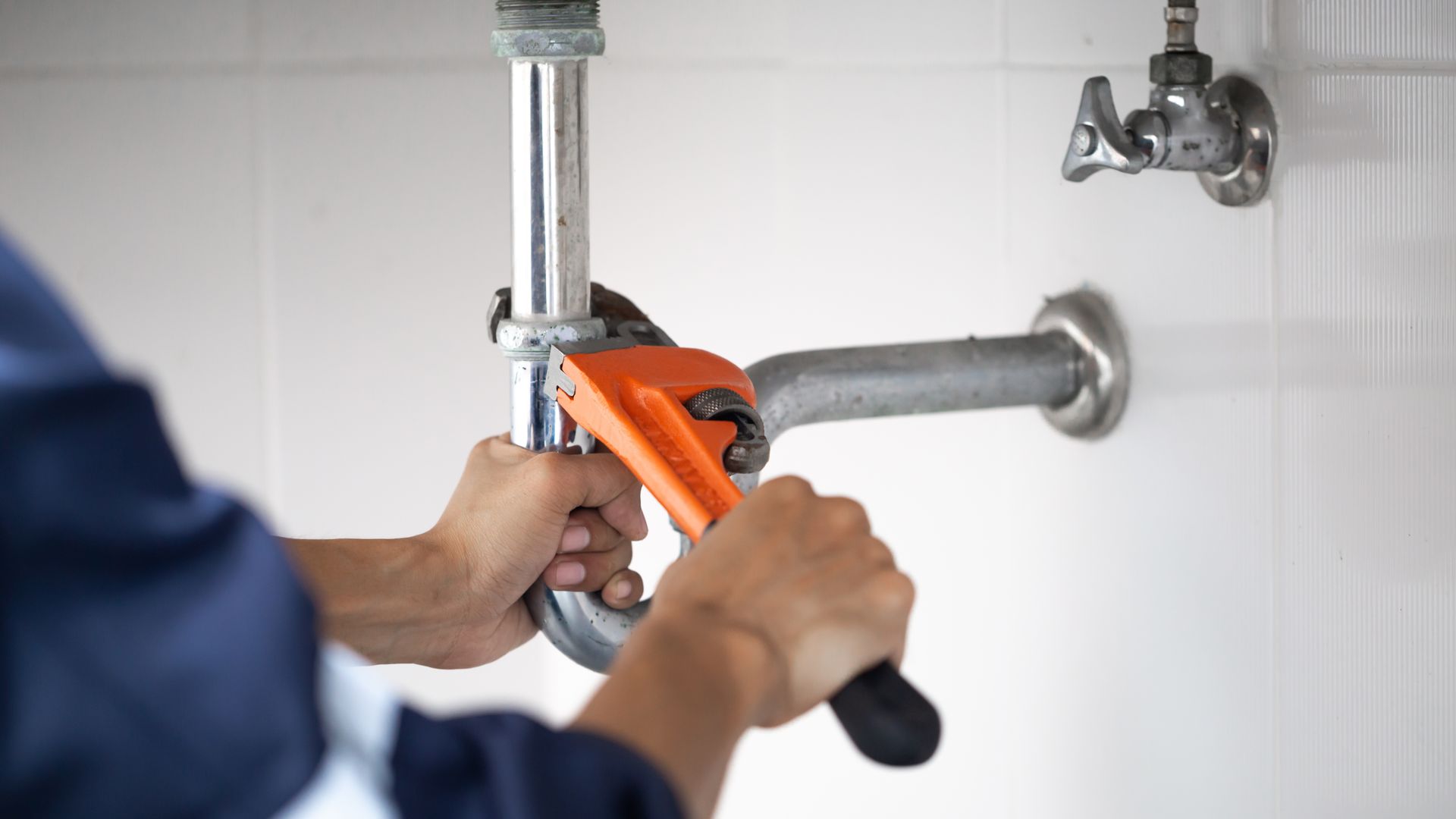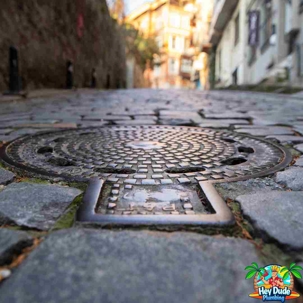Recognize Sewer Line Problems and Know When to Call for Help
The sewer line of your home is one of the essential plumbing installations that rarely draws attention until it develops a problem. A proper working sewer system helps to deliver the wastes away from your compound in a proper manner hence enhancing cleanliness. However, when problems arise, they are capable of growing into serious ones causing a lot of damages and sometimes posing serious health risks. In this blog post, you will learn a few signs that show that sewer line is faulty and why it is important to seek services of a professional as soon as possible. Knowing these signs could help save your time, money, and avoid the hassle of getting a plumbing emergency.
Understanding Your Sewer Line
They are an integral part of the plumbing system in your home and are responsible for the removal of waste out of the property and into the municipal sewer system or septic system. This underground pipe is meant to take in all the wastes from your home’s sinks, toilets, showers, and appliances among others. This is a very crucial part, though many homeowners seldom give much thought to the sewer line—unless something goes wrong.
There can be various causes of problems with the sewer line in a property or any building. Some of the reasons for pipe blockage include; intrusion of tree roots into the pipes, corrosion of the pipes due to old or substandard material, and blockage by accumulation of debris or foreign bodies. Not only can tree roots enter and grind up your sewer line, but shifts in the ground due to weather and even construction can as well. The following are some of the potential issues that need to be understood so as to protect your home from the extensive damage that a faulty sewer line can cause.
Common Warning Signs of Sewer Line Problems
Sewer line problems rarely come out of the blue. In many cases, there are common warning signs. Being on the lookout for these signs will give you a better chance of catching issues before they manifest into very expensive repairs or serious health hazards. Key warning signs include the following:
- Slow Drains on Multiple Fixtures: If water drains sluggishly from fixtures at different locations in your house, then blockage within the sewer line might be the case.
- Gurgling Noises from Drains or Toilets: If you hear strange gurgling or bubbling in your drains or toilets—especially when flushing toilets or using water elsewhere in the house—it may mean there is blocked air in your plumbing system as a result of a blockage to the sewer line.
- Foul Odors in the House or Yard: If your house or yard smells of sewage, then most likely there’s a problem with your sewer line. This could be due to a crack in the line or blockage, forcing sewer gases back up the pipes.
- Backups in Sinks and Tubs: The most obvious and perhaps the worst sign of a sewer line problem is when you start to see sewage coming back up into your home’s drains. This typically happens in the lowest parts of your home, like the basement or first-floor bathrooms.
- Lush Grass Patches in Your Yard: While a green lawn is usually a good thing, unusually lush or wet patches in your yard—particularly if it smells really bad—can be indicative that you have a leak in your sewer line. The leaking sewage acts as a fertilizer, allowing the grass above it to grow more vigorously.
This would catch it very early and therefore change everything in respect to being able to fix sewer line problems before they develop into a full-blown plumbing disaster. If you’re experiencing any of these signs, you must act fast.
The Dangers of Ignoring Sewer Line Issues
Though this may sound like a hassle, ignoring sewer line issues can lead to grave and rather expensive issues. A damaged or clogged sewer line presents the immediate risk of health hazards because it will back up sewage into your house and business, exposing you and your family to dangerous bacteria, viruses, and parasites. These pathogens can cause serious diseases, especially if they contaminate living spaces or drinking water.
Besides health risks, an unplanned sewer line can cause severe property damage. The sewage backs up into your floors, walls, and furniture, thus causing considerable money for repairs. Besides, constant leaking from the sewer line will either wear out the foundation of your home or create sinkholes in your yard that may weaken your property’s structure.
It can be very costly to ignore the problems associated with sewer lines. A minor blockage that may appear so insignificant at this time can easily escalate to a major repair later if not checked. It is then, in relative terms, much costlier and more disruptive to have a sewer line repaired or replaced than to address a minor issue early enough. If the problem affects your neighbors or the public system, you could be liable for additional damages and repairs.
The risks associated with not taking heed of the issues in your sewer line far outweigh the inconvenience of addressing them in a timely manner. Very early detection and intervention may save you from major failures, thus reducing the stress, health risks, and financial burdens associated with these events.
When to Call a Professional Plumber
While it is one thing to be able to identify the signs of a sewer line problem, knowing when to recruit a professional plumber into the picture makes all the difference in saving one’s pocket from potential damage. Sure, minor clogs or slow drains can easily be disposed of using a plunger or a bottle of drain cleaner, but serious problems really should be attended to by trained professionals.
If you notice that several of your home’s drains start backing up at the same time, or if you actually see sewage backing up into your sinks, tubs, or toilets, then you need to call a plumber right away. These are dead giveaways of a major block or rupture to the main sewer line—this is where a professional is needed.
Unexplained wet spots or lush patches in your lawn, particularly if associated with a foul odor, would also be reasons to call a plumber. These are potential symptoms of a leaking sewer line, which can cause significant property damage if not addressed quickly.
Further, if you find gurgling sounds coming from your drains or start to smell sewage fumes in or around your home, do not hesitate to look for professional service. This is an indication of a critical blockage or rupture that needs urgent attention in the sewer line.
The longer you let it go, the worse the problem can become. This kind of professional will have the proper tools and knowledge to diagnose and fix sewer line issues fast and with minimum hassle, thus saving you from expensive repairs or health hazards further on down the line. When in doubt, it’s always better to err on the side of caution and call in a professional.
How a Professional Can Help
In the time when you have a sewer line problem, no one could be better than a professional plumber. They have tools, knowledge, and expertise that will help diagnose and efficiently repair any problem to you with as little disruption to your home as possible and prevent further damage.
First and foremost, any plumber will meticulously inspect your sewer line. More often than not, this is done with innovative diagnostic tools, including a sewer camera. This feeds into the sewer line of your home with a high-resolution, small camera, thereby allowing the plumber to get a clear view of the interior of the pipes, thus showing the location of the problem and what it actually is—a blockage, crack in the pipes, or infiltration by tree roots.
Once the problem is identified, the professional plumber will suggest the best solution. One such method applied to clean blockages from the line is hydrojetting. Through this process, high-pressure stream water is used, which might break and wash out any junk, grease, or even tree roots that create blockage.
If the sewer line is broken, then pipe relining or pipe bursting may be considered as an option. One of these processes is pipe relining, in which a flexible tube, covered in resin, is fed into the damaged pipe and hardens, forming a new, very strong lining inside the old pipe. The process is less intrusive and cheaper in most instances when compared with the conventional replacement of pipes. In more severe cases of damage, it might be necessary to burst the pipes, where a new pipe is pulled through the old one, shattering the damaged pipe apart as it goes.
In cases when it is needed to excavate and replace a sewer line, a professional plumber will take care of the whole process to make sure the work is done in a safe way and to code. They will handle all the required permits and inspections so that you can relax, your home’s plumbing being in good hands.
In the end, this could hire a professional plumber to help in correcting and solving the problem with a sewer line effectively and efficiently, which involves wasting money and time by constantly having to deal with these recurring issues.
Conclusion
Sewer line issues are a homeowner’s worst nightmare; however, knowing some of the red flags and seeking help at once will help avoid severe catastrophes. These are some of the signs that should not be overlooked; slow moving water, gurgling sounds, and foul smell. It is therefore important to understand how much vulnerable your home and your family are to health hazards in case sewer line issues are not addressed and when to seek the help of a professional sewer contractor.
A professional plumber has the knowledge on how to address such issues with the sewer line making sure that your plumbing system is always in its best condition. Do not take a chance of having a small problem in your sewer line become a major crisis— if you have a concern, call Hey Dude Plumbing today to schedule an inspection and get professional repair.
By doing this it will eliminate any future stress and cost that may be incurred in having your home plumbing system repaired hence serving the purpose for many years.

